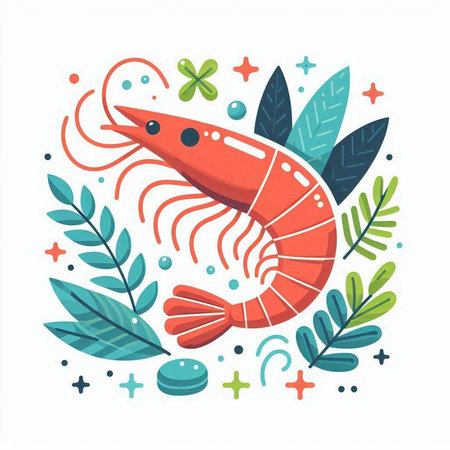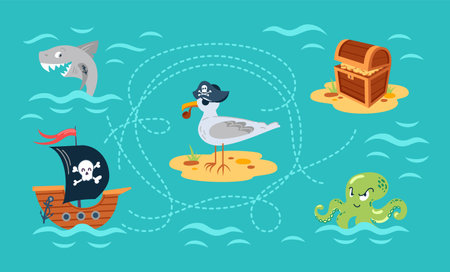Introduction: The Joy of Angling for Young Minds
In the heart of India, where rivers flow like lifelines and ponds are brimming with quiet tales, fishing is much more than a sport—it’s a cherished experience woven into the fabric of daily life. For generations, families have gathered by the water’s edge, rods in hand and hearts open to nature’s gentle rhythms. Introducing children to angling isn’t just about learning how to catch a fish; it is an invitation for young minds to slow down, breathe in the earthy scents of the monsoon-washed banks, and discover a sense of calm that only nature can offer. Whether it is under the golden light of an early morning on the Ganges or by a peaceful village lake in Kerala, fishing workshops for kids across India nurture not only skill but also respect, patience, and an appreciation for the natural world—a true legacy passed from elders to eager little hands.
Traditional Indian Fishing Methods and Stories
In the heart of India, fishing is more than just a pastime—it is an age-old tradition woven into the cultural fabric of riverbank communities. During our Educational Fishing Workshop for Kids, children will dive into this fascinating world by exploring time-honoured techniques and listening to folk tales that have been passed down through generations.
Indigenous Techniques: Bamboo Rods, Traps, and More
Indian rivers and lakes are home to unique fishing methods that reflect local ingenuity. For example, in Assam and West Bengal, kids will discover how fishermen expertly craft bamboo rods to catch small river fish. In Kerala, traditional traps made from natural fibers are still widely used. These methods not only teach patience but also highlight the importance of respecting aquatic life.
Popular Traditional Fishing Techniques Across India
| Region | Technique | Special Features |
|---|---|---|
| Assam & West Bengal | Bamboo Rod Fishing | Eco-friendly rods, hand-crafted from local bamboo |
| Kerala | Traditional Fish Traps (Cheenavalas) | Large nets operated with counterweights, unique to Kerala backwaters |
| Maharashtra & Goa | Riverbank Gathering (Jalpari) | Community-based fishing, often followed by a shared meal on the banks |
| Odisha & Andhra Pradesh | Casting Nets (Veshalu) | Circular nets thrown skillfully by hand for maximum catch efficiency |
The Art of Storytelling: Fishing Folk Tales from Across India
No Indian fishing workshop is complete without listening to captivating stories under the shade of a banyan tree. One popular tale from Bengal is about a clever fisherman who outsmarts a hungry crocodile using his knowledge of river currents. In Gujarat, stories often revolve around monsoon floods bringing in schools of fish and the community’s joy as they celebrate their good fortune together.
Why Share These Stories?
These folk tales connect young anglers to their roots and foster respect for nature. Through these narratives, children learn not only fishing skills but also values like teamwork, patience, and environmental responsibility—core lessons that every budding angler should carry forward.

3. Essential Skills: Knot-Tying, Casting & Safety
At the heart of our educational fishing workshop for kids in India is a strong focus on hands-on skills that blend tradition with adventure. We start with the basics—teaching the art of knot-tying, a skill passed down through generations of Indian anglers. Kids will learn how to tie reliable knots such as the clinch knot and palomar, often used by local fishermen along the mighty Ganges or calm Kerala backwaters. With guidance from experienced instructors, children get to practice these knots using locally sourced fishing lines and bamboo rods, making it both practical and culturally relevant.
Casting Methods with Local Flavour
Next comes casting, an essential skill for every young angler. In India’s diverse water bodies—from the bustling riverbanks of Yamuna to serene lakes in Uttarakhand—casting techniques vary widely. Our workshop introduces kids to overhand and sidearm casting methods, tailored to the types of gear commonly found in Indian markets. This includes traditional bamboo rods and eco-friendly floats made from coconut husks or recycled materials, giving kids a taste of sustainable angling practices unique to our country.
Emphasising Safety First
No fishing adventure is complete without a strong foundation in safety. We teach children how to recognise safe fishing spots, respect seasonal monsoon currents, and spot local wildlife like kingfishers or even monitor lizards basking near the banks. Special attention is given to wearing hats against the Indian sun, staying hydrated with nimbu pani (lemon water), and always having a buddy system. Our coaches also demonstrate how to handle fish gently and release them safely back into the wild, promoting ethical angling from an early age.
Hands-On Learning in India’s Natural Classrooms
Each session transforms riversides, lakeshores, or sandy beaches into lively outdoor classrooms where laughter mingles with the sound of splashing water. By learning these essential skills under expert supervision and within real Indian landscapes, kids not only master the technicalities but also develop respect for their environment—a lesson that echoes long after the last fish swims away.
Respect for Water Bodies: The Ethics of Responsible Fishing
In the heart of India, rivers and lakes are not just water sources—they are lifelines, sacred entities, and a source of inspiration for countless generations. When children join an educational fishing workshop, one of the first lessons they learn is the importance of treating these water bodies with deep respect. Sustainable fishing is more than just a technique; it’s a way to preserve our aquatic ecosystems for future generations. Indian culture teaches us ‘Jal hi Jeevan hai’—Water is Life—reminding us that every drop counts and every living being in our rivers has a role to play.
Teaching young anglers about responsible fishing involves understanding how their actions can impact fish populations, plant life, and the overall health of rivers. In many Indian communities, rituals by the Ganges or Yamuna show reverence for water, reinforcing that fishing should be done thoughtfully and never wastefully. Kids learn simple but powerful practices: always releasing undersized fish, avoiding littering, and using eco-friendly bait. These small steps make a big difference.
Indian Cultural Belief |
Sustainable Fishing Practice |
Impact on Nature |
|---|---|---|
Rivers as Sacred Entities |
No harmful chemicals or plastics |
Cleaner habitats for aquatic life |
‘Jal hi Jeevan hai’ (Water is Life) |
Catch-and-release methods |
Maintains fish populations |
Puja & Rituals at Riversides |
Respectful silence and mindfulness |
Reduces stress for wildlife |
This respectful approach transforms a simple day of fishing into a meaningful connection with India’s natural heritage. By integrating cultural values with environmental ethics, kids discover that protecting water bodies ensures both joyful adventures today and thriving rivers tomorrow.
Exploring Local Fish Species
One of the highlights of our educational fishing workshop is taking young anglers on a journey through India’s vibrant aquatic world. As children gather around the water’s edge, they are introduced to some of India’s most iconic native fish species—each with its own story waiting to be discovered. Rohu, with its shimmering silver scales, is a favourite in Indian rivers and kitchens alike. Kids love learning how this friendly giant can grow quite big and thrives best in slow-moving waters like the Ganges and Yamuna. Did you know Rohu prefers to feast on soft aquatic plants? That’s one fun fact that often sparks curiosity!
Meet the Mighty Catla
The Catla is another local superstar, easily recognised by its large head and broad body. Native to India’s rivers, Catla has adapted to life in both wild streams and community ponds. Our instructors share stories about fishermen waking up at dawn, hoping to catch this powerful swimmer who loves to leap when excited. Children quickly become fascinated by how Catla helps balance the river ecosystem by feeding on plankton.
The Legendary Mahseer Adventure
No introduction to Indian fish would be complete without mentioning the legendary Mahseer. Revered as the “Tiger of Indian Rivers,” Mahseer is known for its strength and beauty. Instructors tell tales of Mahseer navigating rapid mountain streams in places like Uttarakhand and Karnataka. These stories help kids understand why protecting such species is vital—not just for anglers, but for everyone who cherishes India’s natural heritage.
Encouraging Curiosity & Respect
By sharing these fun facts and habitat tales, we inspire kids to look beyond the fishing rod and appreciate the rich biodiversity right in their backyard. Whether it’s marveling at Rohu’s size or imagining Mahseer’s river adventures, every child leaves with a sense of wonder—and a newfound respect for the delicate balance of nature found across India’s waterways.
6. Community & Togetherness: Shared Fish Tales
In India, fishing is not just about catching fish—it’s about creating memories and weaving the community closer together. Educational fishing workshops for kids often transform into picnic-style outings where families gather by tranquil rivers or lakes, sharing homemade snacks like samosas, poha, or piping hot chai under the shade of neem and banyan trees. Here, children learn that fishing is a team activity, full of laughter and friendly banter, rather than a solitary pursuit.
One of the most heartwarming aspects is the presence of elders—dadas, nanis, and uncles—who lovingly pass down traditional techniques and stories from their own childhood days along the Ganges or Godavari. Their wisdom covers everything from tying local knots to recognizing which fish thrive in Indian waters during monsoon season. Kids listen wide-eyed to tales of legendary catches and lessons learned the hard way, gaining not only practical tips but also respect for nature and culture.
The spirit of mild competition adds extra excitement to these gatherings. Who will catch the biggest rohu today? Who can untangle a net the fastest? Yet, it’s always friendship that takes center stage. After all, winning is sweet, but sharing jalebis at sunset while recounting your “big fish” adventure feels even better. Through these shared moments, children discover that fishing builds bonds—across generations, communities, and backgrounds—making every workshop a celebration of unity on India’s riverbanks.
7. Wrap-Up: Take-Home Memories and Eco-Friendly Practices
As the sun sets over the tranquil waters, it’s time to bring our educational fishing workshop for kids in India to a gentle close. We gather the children together, their faces still glowing with excitement from the day’s adventures. Here, we encourage each young angler to share stories of their biggest catch, their silliest slip-up, or even the moment they felt most connected with nature. These shared tales become treasured memories, weaving new friendships and strengthening family bonds—just like sharing a homemade masala chai by the riverside.
To make this day unforgettable, every participant receives a small keepsake—perhaps a locally crafted fish-shaped keychain or a simple eco-friendly badge. These mementos serve as gentle reminders of the skills learned and the importance of respecting our rivers and lakes. We also guide children on how to care for their equipment and safely release fish back into the water, reinforcing ethics that echo through India’s age-old reverence for life.
Before we say goodbye, there is one more crucial lesson: committing to eco-friendly practices. We invite everyone to pledge not only to pick up after themselves but also to help keep our waters clean for future generations. By teaching children about biodegradable bait containers and reusable water bottles, we plant seeds of environmental stewardship that will flourish long after the workshop ends.
So as you pack up your rods and colourful tackle boxes, remember that every fishing trip is more than just a day out—it’s an opportunity to grow, learn, and protect the wonders of India’s great outdoors. With every cast line and released fish, may these young anglers carry forward respect for nature and create ripples of positive change wherever they wander next.


